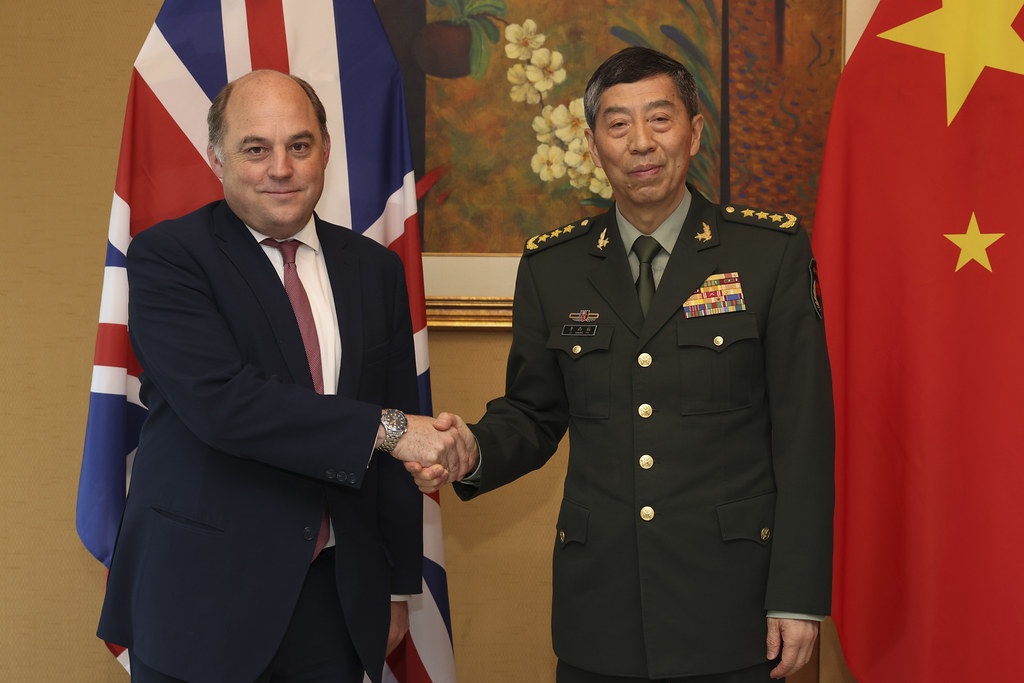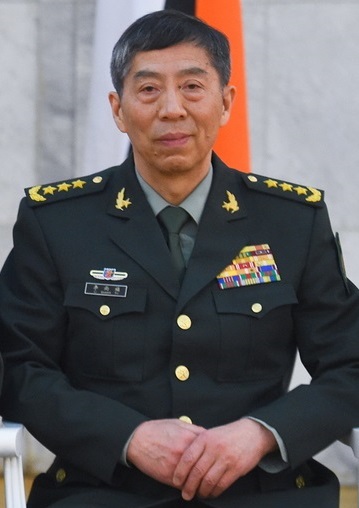China’s Defense Minister, Li Shangfu, emphasizes dialogue with the US at Asia security forum, cautions against ‘NATO-style’ alliances in the Pacific.
Li Shangfu emphasizes dialogue over confrontation with the United States, highlighting the potential global catastrophe of a conflict between the two nations.

Speaking at the Shangri-La Dialogue, a prominent security summit in Asia, Li asserts that there is ample space for both China and the US to thrive. Despite their differences, he calls for seeking common ground and interests to foster bilateral ties and deepen cooperation.
Li warns that a severe clash or confrontation between China and the US would have unbearable consequences for the world. The strained relations between the two countries involve various issues such as Taiwan, territorial disputes in the South China Sea, and US restrictions on semiconductor chip exports.

The US accuses the Chinese navy of unsafe maneuvers near a US destroyer in the Taiwan Strait, while China accuses the US of encouraging independence forces in Taipei.
Secretary of Defense Lloyd Austin expresses deep concern over China’s reluctance to engage in meaningful military talks, emphasizing the importance of dialogue in preventing misunderstandings and conflicts.
Austin reiterates that the US will not back down in the face of coercion from China and will continue to assert the international status of the Taiwan Strait and the South China Sea.
Li’s speech maintains a restrained tone, accusing some countries of meddling in China’s internal affairs and warning against the establishment of NATO-like military alliances in the Asia Pacific region. He criticizes the resurgence of a Cold War mentality and advocates for mutual respect instead of bullying and hegemony.
Li’s remarks allude to the US strengthening its regional alliances, such as AUKUS and the Quad group. China feels increasingly encircled by the US, leading to a focus on enhancing defense capabilities.
Despite the tensions, Beijing acknowledges the importance of maintaining communication channels and holds talks with defense chiefs of US allies, South Korea and Japan, as well as hosting discussions with US Assistant Secretary for East Asian and Pacific Affairs Daniel Kritenbrink.
However, China resists high-level talks with the US defense minister as a signal of perceived American hypocrisy in their approach.
An analysis of the news
The statement by China’s Defense Minister Li Shangfu, in which he warns of the potential “unbearable disaster” resulting from a clash with the United States, highlights the escalating tensions between the two countries. The remarks come at a time when the relationship between China and the US is strained due to various contentious issues such as trade, technology, human rights, and territorial disputes.
Li’s statement underscores China’s concern about the possible consequences of a military confrontation with the United States. It suggests that Chinese leadership recognizes the destructive nature and far-reaching implications of a direct conflict between the world’s two largest economies and military powers. By emphasizing the catastrophic outcome of such a clash, Li aims to emphasize the importance of dialogue and peaceful resolution of disputes.
This statement can be seen as an attempt by China to project a responsible and cautious image on the global stage. By highlighting the potential disaster, China aims to position itself as a responsible and peace-seeking nation, while suggesting that the onus is on the US to prevent such a catastrophic event. It also signals China’s preference for diplomatic engagement over military confrontation, indicating a willingness to pursue dialogue and negotiations with the US to address their differences.
The timing of Li’s remarks, made at Asia’s top security summit, the Shangri-La Dialogue, is significant. It indicates China’s intent to convey its message directly to regional and international stakeholders. By addressing an influential audience of defense officials and experts, China aims to shape the narrative surrounding the US-China relationship and garner support for its diplomatic approach.
Overall, Li’s statement reflects the increasingly complex and tense nature of US-China relations. While the language used suggests a desire for dialogue and peaceful resolution, it also underscores the high stakes involved and the potential for significant global consequences if tensions escalate into open conflict. The key challenge now lies in finding common ground and constructive ways to address the underlying issues in order to avoid the disastrous outcome that both sides seek to avert.
SOURCE: AL JAZEERA AND NEWS AGENCIES


